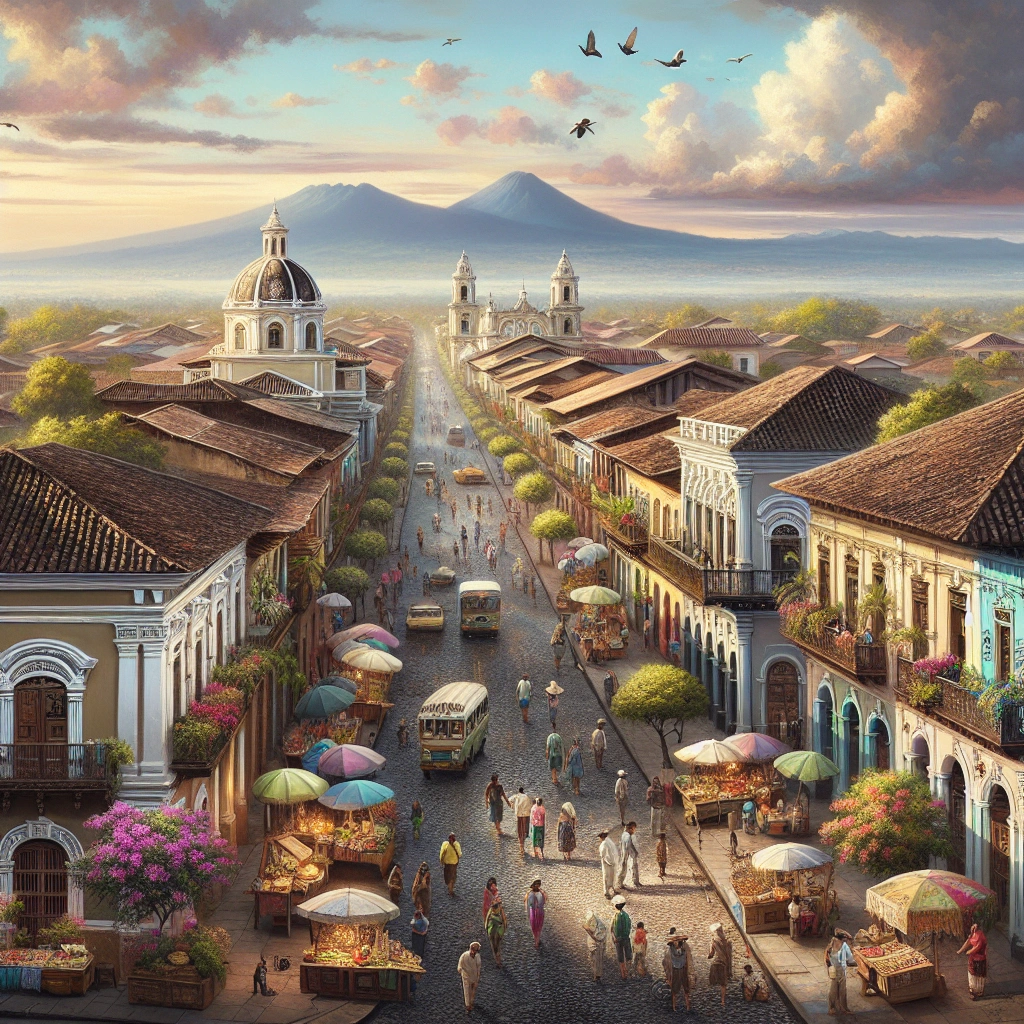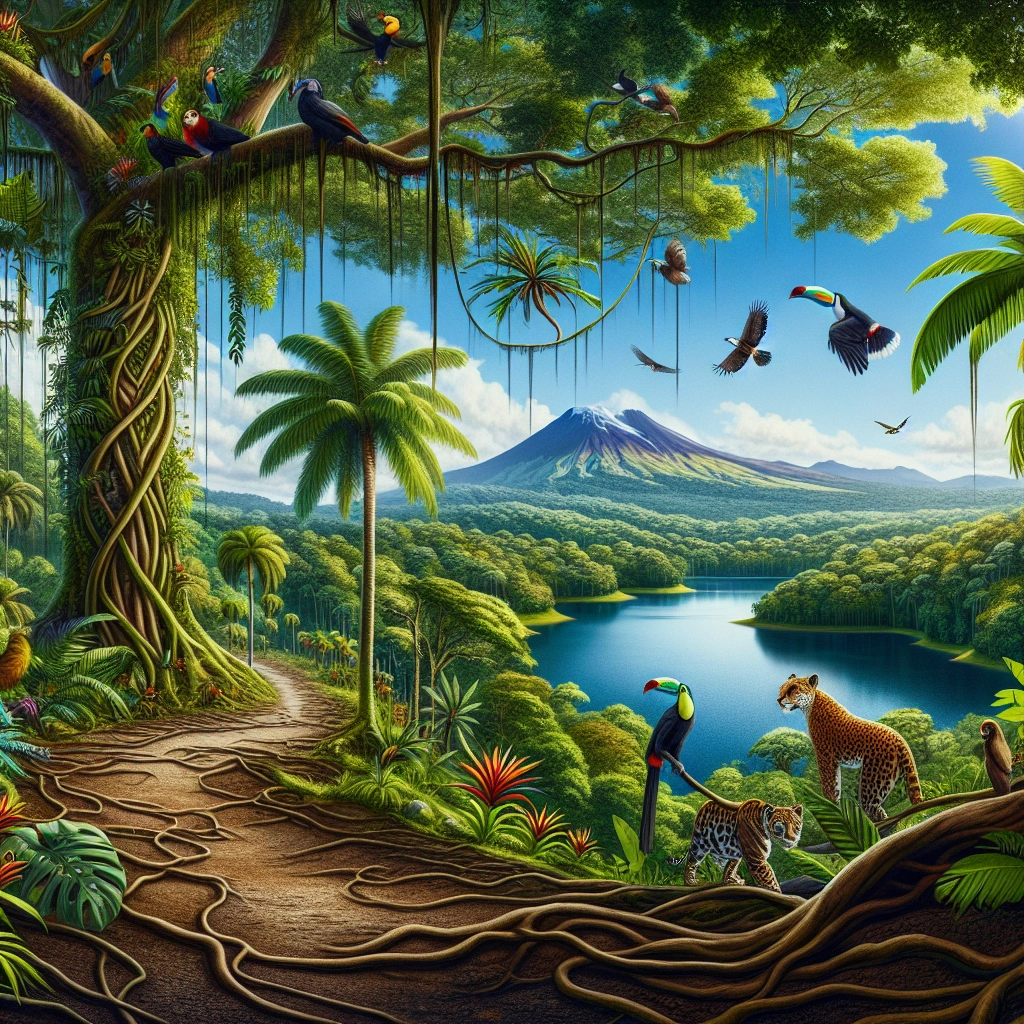[ad_1]
Nicaragua, the largest country in Central America, is often overshadowed by its more famous neighbors. However, this hidden gem is emerging as a premier eco-tourism destination, offering travelers a unique opportunity to connect with nature while supporting sustainable practices. With its diverse ecosystems, stunning landscapes, and rich cultural heritage, Nicaragua invites visitors to experience nature like never before.
Nicaragua boasts a remarkable range of natural environments, from pristine beaches on the Pacific and Caribbean coasts to volcanic mountains and lush rainforests. The country is home to several national parks and reserves, safeguarding an array of flora and fauna. One of the most celebrated parks is Masaya Volcano National Park, where visitors can witness the impressive sight of an active volcano while encountering unique wildlife in the surrounding dry tropical forest.
Another significant ecological treasure is the Indio Maíz Biological Reserve, one of the largest protected areas in Central America. This reserve offers guided tours through dense jungle, where adventurers can observe rare species, including the jaguar, tapir, and numerous species of birds. Wildlife enthusiasts will appreciate the diverse ecosystems, including wetlands, rivers, and ancient trees.
Eco-tourism in Nicaragua goes beyond simply appreciating the natural beauty. It is deeply rooted in the principles of sustainability, ensuring that local communities benefit from tourism while preserving the environment. Many eco-lodges and tour operators are committed to environmentally friendly practices, such as waste reduction, water conservation, and supporting local farmers.
Travelers can find accommodations that utilize solar energy, practice rainwater harvesting, and even offer organic food sourced from local communities. By choosing eco-friendly options, visitors contribute to the livelihoods of local families and help foster a sense of stewardship for Nicaragua's natural resources.
One of the most enriching aspects of eco-tourism in Nicaragua is the opportunity to engage with local communities. Many eco-tourism initiatives are designed to involve indigenous and rural communities, enabling tourists to experience traditional ways of life. Homestays and community-run tours offer authentic cultural exchanges, where visitors can participate in local crafts, cooking classes, and cultural ceremonies.
For instance, a visit to the indigenous communities of the Bosawás Biosphere Reserve allows travelers to learn about traditional agricultural practices and the importance of preserving indigenous knowledge. By engaging with locals, tourists gain a deeper appreciation for Nicaragua's cultural heritage while supporting efforts to sustain local economies.
For the adventure seekers, Nicaragua offers a plethora of outdoor activities that highlight its natural wonders. Hiking enthusiasts can explore the numerous trails in national parks, such as the breathtaking Cerro Negro Volcano, where visitors can partake in volcano boarding—a thrilling descent down the side of the volcano on a board. Meanwhile, kayakers can paddle through the calm waters of Lake Cocibolca or the Río San Juan, navigating through mangroves and spotting diverse wildlife.
Surfing enthusiasts will find world-class waves along the Pacific Coast, particularly in towns like San Juan del Sur, which offer a vibrant surf culture and stunning sunsets. Whether you want to hike, surf, kayak, or simply soak in the beauty of nature, Nicaragua provides endless opportunities for adventure.
As with any eco-tourism destination, responsible travel is essential to preserving Nicaragua's delicate ecosystems. Here are some tips for visitors looking to minimize their impact:
Choose Eco-Friendly Accommodations: Stay at eco-lodges and hotels that use sustainable practices and prioritize environmental conservation.
Respect Wildlife: Observe animals from a distance and avoid feeding them. Stick to marked trails to minimize disruption to their habitats.
Support Local Communities: Purchase handmade goods from local artisans and eat at community-run restaurants to ensure your contributions benefit the locals.
Reduce Waste: Carry reusable water bottles, bags, and utensils to minimize plastic waste and dispose of trash responsibly.
Nicaragua's eco-tourism potential is boundless, offering travelers a chance to experience nature like never before while fostering sustainable practices and empowering local communities. From lush jungles to active volcanoes, the beauty of Nicaragua invites you to explore, learn, and connect. By choosing eco-tourism, you not only embark on an adventure of a lifetime but also become part of a movement towards a more sustainable future for this enchanting land. So pack your bags and get ready to discover Nicaragua, where every step taken is a step towards preserving the planet.
[ad_2]
 Nicaragua: The Perfect Destination for Thrill Seekers and Nature Lovers
Nicaragua: The Perfect Destination for Thrill Seekers and Nature Lovers The Vibrant Streets of Granada: Nicaragua's Colonial Jewel
The Vibrant Streets of Granada: Nicaragua's Colonial Jewel Travel on a Budget: How to Experience Nicaragua Without Breaking the Bank
Travel on a Budget: How to Experience Nicaragua Without Breaking the Bank Adventure Awaits: Top Outdoor Activities to Enjoy in Nicaragua
Adventure Awaits: Top Outdoor Activities to Enjoy in Nicaragua Nicaragua's National Parks: A Nature Lover's Itinerary
Nicaragua's National Parks: A Nature Lover's Itinerary
The article on Nicaragua's eco-tourism is quite informative and highlights the country's potential as a travel destination. I was particularly intrigued by the mention of Masaya Volcano National Park and its unique wildlife. The idea of observing an active volcano while enjoying the surrounding dry tropical forest sounds like an unforgettable experience. Additionally, the focus on sustainable practices in eco-tourism is commendable, as it not only benefits travelers but also supports local communities. It's encouraging to see how eco-lodges are adopting environmentally friendly measures like solar energy and organic farming. This approach fosters a sense of responsibility among tourists, which is essential for preserving natural resources. The engagement with local communities through homestays and traditional activities adds a personal touch to the travel experience, allowing visitors to gain deeper insights into Nicaraguan culture. Overall, this article paints a vivid picture of Nicaragua's diverse landscapes and cultural richness, making it an appealing destination for nature lovers and eco-conscious travelers alike.
Nicaragua seems to be emerging as a notable eco-tourism destination based on this article. The diversity of natural environments described, from beaches to volcanic mountains, provides ample opportunities for various outdoor activities. I found it interesting that Nicaragua has initiatives focused on supporting sustainable practices within local communities. This not only enhances the travel experience but also ensures that tourism positively impacts the locals economically. As someone who enjoys adventure travel, the prospect of hiking in national parks or kayaking through mangroves is very appealing. I appreciate that responsible travel tips were included in the article; they serve as useful reminders for visitors to minimize their ecological footprint while exploring beautiful locations like Nicaragua's lakes and forests. Engaging with indigenous communities through cultural exchanges adds another layer of enrichment to traveling there that many destinations may lack today. It's wonderful that travelers can learn about agricultural practices directly from those who have lived them for generations.
The insights provided about Nicaragua’s eco-tourism landscape are quite compelling and showcase its potential as a future hotspot for responsible travelers. With so much focus on sustainability today, it's refreshing to see how Nicaragua integrates this into its tourism framework effectively by promoting local engagements alongside environmental conservation efforts. The description of places like Indio Maíz Biological Reserve piqued my interest since witnessing rare species in their natural habitats can create lasting memories for visitors while educating them about biodiversity loss globally. The mention of community-run tours allows tourists not only to enjoy authentic experiences but also helps empower local artisans economically—an aspect often overlooked in conventional tourism models. It’s evident that Nicaragua's commitment to preserving its ecosystems while still offering adventure activities such as volcano boarding makes it stand out among other Central American countries known more widely for tourism purposes.
I enjoyed reading about Nicaragua’s burgeoning reputation as an eco-tourism destination in this article; it's fascinating how much diversity exists within one country! The variety of landscapes mentioned—from rainforests to volcanoes—offers something unique for every type of traveler seeking adventure or relaxation alike! Moreover, the emphasis placed on sustainability throughout tourist operations demonstrates responsible planning essential in today's world where environmental concerns are at their peak due to climate change impacts worldwide affecting many regions profoundly including Central America itself! Supporting local economies through tourism interactions surely fosters goodwill between visitors and residents alike promoting cross-cultural understanding further enhancing these experiences beyond mere sightseeing which often falls flat otherwise lacking depth or significance when done superficially.
"This article provides an excellent overview of what makes Nicaragua a noteworthy choice for eco-tourism enthusiasts looking forward toward future travels post-pandemic recovery efforts worldwide across various industries including hospitality & leisure sectors overall! By highlighting some remarkable sites such as Cerro Negro Volcano alongside initiatives aimed at protecting wildlife habitats through ecologically sound strategies combined with community involvement aspects add layers enriching dimensions further enhancing overall experiences travelers seek when journeying far away from home seeking authenticity amidst stunning natural beauty prevalent throughout landscapes here too."